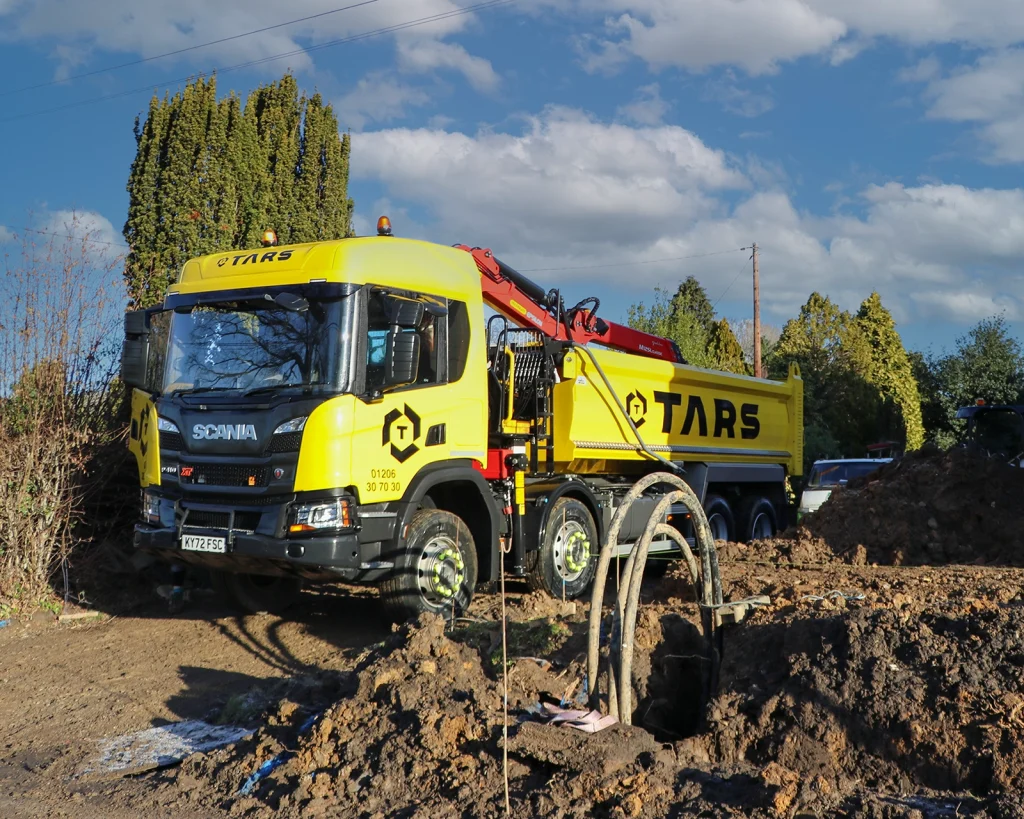In any construction or demolition project, efficient waste management is crucial for maintaining a clean, safe, and productive site. One of the most important aspects of this process is muckaway – the removal of waste materials such as soil, rubble, and debris. Whether you’re clearing land, excavating foundations, or demolishing structures, muckaway ensures that excess materials are properly disposed of, making way for smooth progress.
At TARS Ltd, we specialise in offering professional muckaway services tailored to the unique needs of each project, ensuring that waste is removed safely and in compliance with environmental regulations. However, not all waste is the same. Depending on the material, muckaway can be classified into different types, each requiring specific handling and disposal methods. From inert waste to hazardous materials, our team is equipped to manage every type of muck, providing environmentally responsible solutions for construction sites of all sizes.
Jump to a section:
What is Muckaway?
“Muckaway” is a term commonly used in the construction and waste management industries, referring to the removal and disposal of waste materials from a construction site. These materials, often referred to as “muck,” can include soil, rubble, and other debris generated during groundwork, excavation, and demolition processes.
Muckaway is an essential service in any construction project that involves clearing the site or digging foundations. It ensures that excess materials are properly removed, allowing for a safe and efficient working environment.

Types of Muckaway
It’s important to understand the different types, or classifications, of muckaway. Each type of material requires different handling and disposal methods. Misclassifying them can lead to higher costs, project delays, and even environmental risks. By classifying waste correctly, you can reduce disposal fees, ensure compliance with environmental regulations, and keep your project on schedule.
Inert Muckaway
Inert waste is stable and non-hazardous, making it the easiest to manage and often recyclable. These materials do not undergo significant physical, chemical, or biological changes and do not react with other substances in the environment. Examples of inert waste include:
- Clay
- Subsoil
- Chalk
- Rubble
- Sand
Inert muckaway is commonly used in land reclamation or as fill material for other construction projects. Since these materials pose minimal environmental risk, they are often recycled or reused.
Hazardous Muckaway
Hazardous waste requires specialised handling, transportation, and disposal due to its potential risks to human health and the environment. Hazardous muck can include:
- Contaminated soil (from fuel spills, chemicals, etc.)
- Asbestos
- Lead-based materials
- Treated wood
These materials must be removed safely and disposed of at licensed hazardous waste facilities. Proper handling is essential to minimise the environmental impact and ensure compliance with regulations.
Non-Hazardous Muckaway
Non-hazardous muck includes materials that are neither hazardous nor inert but still require disposal in a compliant manner. These materials may not pose direct environmental risks, but they cannot be left on-site. Common examples of non-hazardous muck include:
- Uncontaminated soil
- Soil containing heavy metals
- Soil containing non-hazardous chemicals
Green Waste Disposal
Green waste refers to organic material removed from sites during landscaping, ground clearance, or gardening work. While not typically harmful, green waste must be disposed of responsibly to avoid environmental concerns such as the spread of invasive plant species. Examples of green muckaway include:
- Grass clippings
- Bushes and shrubs
- Leaves and branches
Green waste is often sent to composting facilities or used in biomass production, contributing to sustainable waste management practices.
Why is Muckaway Important?
Proper muckaway services are essential for maintaining a clean and safe construction site, reducing hazards, and ensuring compliance with environmental regulations. They play a key role in:
- Space management: Removing muck ensures that the site remains organised and clear, allowing for uninterrupted progress.
- Environmental compliance: Certain types of muck, especially hazardous waste, require specialised disposal methods to prevent environmental damage.
- Efficiency: By promptly removing waste materials, construction projects can proceed without delays caused by obstructions.
At TARS Ltd, we specialise in helping businesses efficiently manage waste removal with a focus on environmentally responsible disposal methods. From simple soil removal to handling hazardous materials, our muckaway services ensure that your project stays on track while complying with all relevant regulations.
Did you find this article useful?
Share it with a friend or colleague using the handy links below.